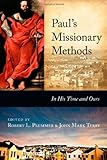Paul's gospel

Now, brothers, I want to remind you of the gospel I preached to you, which you received and on which you have taken your stand. By this gospel you are saved, if you hold firmly to the word I preached to you. Otherwise, you have believed in vain. For what I received I passed on to you as of first importance: that Christ died for our sins according to the Scriptures, that he was buried, that he was raised on the third day according to the Scriptures.
Paul
Every generation has a tendency to drift from a true understanding of the gospel and its implications for our lives. That's why so many New Testament letters were written. Our generation is not exception.
The week leading up to Easter is a good opportunity to be reminded of the centrality of the gospel.
When the exalted Lord Jesus appeared to Paul on the Damascus road he revealed to him the gospel that would open the eyes of both Jews and Gentiles and "turn them from darkness to light, and from the power of Satan to God, so that they may receive forgiveness of sins and a place among those who are sanctified by faith in me" (Acts 26:18). This was not just Paul's gospel, but the one true gospel, by which we are saved.
Here's what Robert Plummer says about Paul's gospel and its significance for those who would walk in Paul's footsteps.
Christian leaders must constantly remind themselves and others of the gospel. All the relational and ethical problems in the church in Corinth flowed from their failure to understand the gospel and live in the light of it. We never move beyond the atoning death of Christ. All ethics and "practical matters" of the Christian life must be rooted in the unchanging truth of Christ's life, death and resurrection.
The gospel must be both proclaimed and received for its saving benefits to be applied. We know Christ when we hear what he has done for us and respond in repentance and faith, receiving the eternal salvation of our souls. A passive, nonverbal witness is an insufficient, truncated expression of the gospel.
The gospel is a new dynamic realm in which we stand. Paul thinks of the gospel as a dynamic entity that grows, prospers, rings forth, comes, advances and saves. The gospel is a dynamic entity because it is not ultimately a human word but a divine word. God's words do not simply observe reality, but create the reality of which they speak.
The gospel announces the only way to be saved from God's righteous judgment. Paul wrote, "there is one God, and there is one mediator between God and men, the man Jesus Christ" (1 Tim 2:5).
Perseverance in the gospel is necessary for salvation. The Bible offers no words of comfort for persons who deny Christ and live unrepentantly in sin.
The gospel is confirmed by authorized eyewitnesses to Christ's resurrection. What Paul received from Jesus, he passed on. We are not innovators but faithful transmitters of the gospel. The apostles are Christ's distinct emissaries whose preaching was written down, producing our canonical New Testament.
The gospel is what God did in history to save lost humanity through his Son, Messiah Jesus. Paul states factually what God did in history through sending his Son. This giving over of God's Son to death was not, in the first measure, a means of maximizing human potential or even fulfill humanity's longings. Jesus' death was "for our sins."
The gospel is fulfillment of God's prior saving promises. The gospel was the completion of a long story of God intervening in the world to reconcile his wayward image-bearers to himself.
Conclusion. The gospel is so simple that young children can believe it, and it is so profound that we can spend the rest of our lives trying to grasp and live out its implications.

